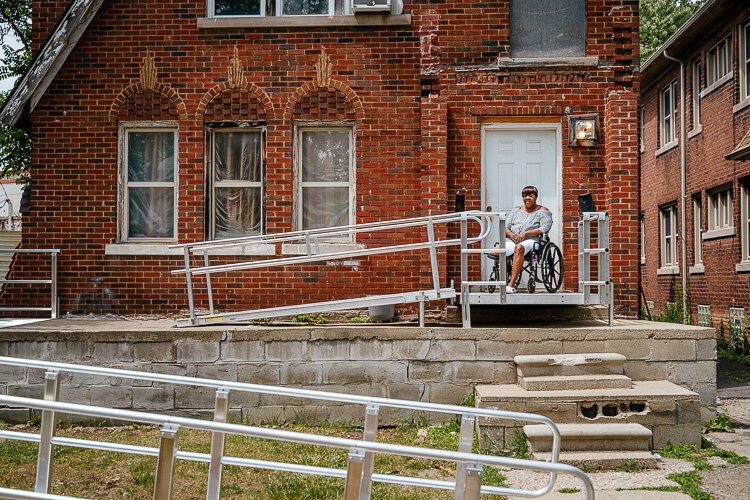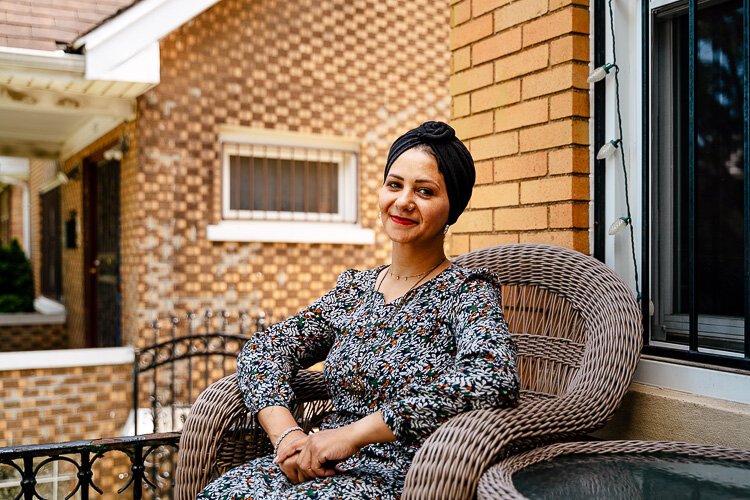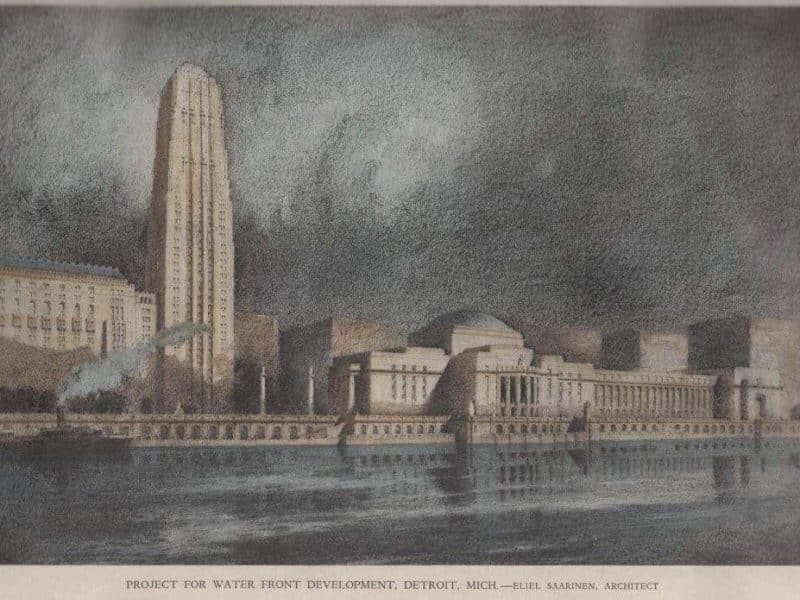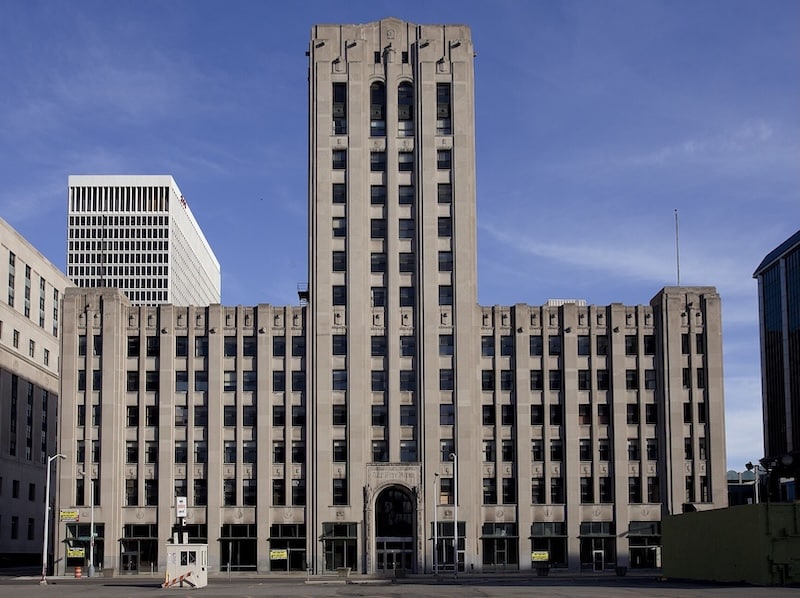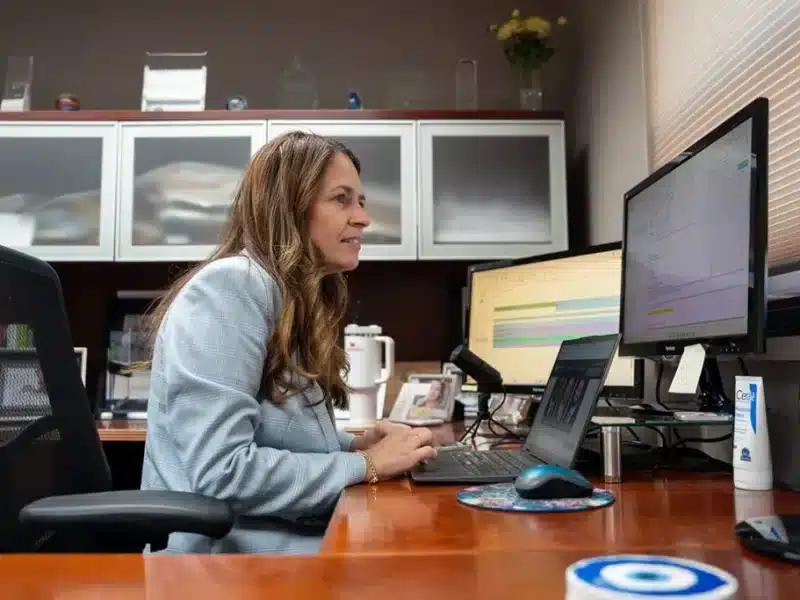Partner Partner Content Home repair programs increase accessibility, alleviate stressors for Detroit residents
It's not always easy to get a home repair or accessibility modification grant, but there are a variety of options in the Detroit area. Here's what you need to know about what's out there.
Getting out the front door has been a struggle for Schlann Dillard for many years. Since her right foot needed to be amputated, she has used a wheelchair to move around. It makes traversing the front stairway into her Southwest Detroit home very
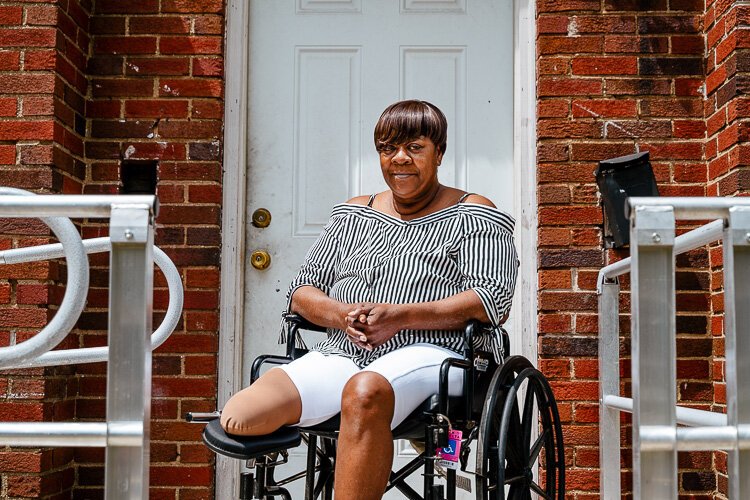
difficult.
“I [wouldn’t] go anywhere unless I had a doctor’s appointment,” says Dillard, who lives on Buena Vista Street. “[It was] very frustrating trying to get in my house. I’d need people on each side of me to help me get in.”
Seeking a way to address this issue, she began looking into the possibility of getting a wheelchair ramp. But ramps are expensive, and she kept running into dead ends when it came to assistance programs. Dillard would contact a nonprofit for help, only to find out they didn’t need assistance with that service or that they didn’t have any funding.
This year, however, she finally found the solution she was looking for through a community development organization called Bridging Communities. The nonprofit serves several Southwest Detroit neighborhoods and has a special focus on assisting seniors.
Bridging Communities informed Dillard of a program called the Accessibility Modification Program (AMP) offered by Federal Home Loan Bank of Indianapolis (FHLBank Indianapolis). As its name suggests, the purpose of the grant is to assist homeowners with repairs and modifications that make their homes more accessible. To be part of the program, which offers grants of up to $10,000, qualified applicants must live in Michigan or Indiana and have incomes at or below 80% of the area’s median income.
Assisted by Bridging Communities and working through Level One Bank (now a division of First Merchants Bank), an FHLB Indianapolis member institution, Dillard applied for and was awarded a $10,000 grant to install a wheelchair ramp at her home. It was installed earlier this month by Greater Detroit Ramp with the help of several volunteers recruited by Bridging Communities.
For Dillard, the new ramp has been a life-changing addition to her home.
“I feel wonderful. I feel so relieved that I can get in and out of my house,” she says. “I [just] took my chair, just me and my little nephew [and] we went to the store. I haven’t been there in three years.”
Lennard Wornum, who lives on the city’s West Side, has also had positive experiences with the program, which also allows grantees to fund other improvements like handrails, wheelchair lifts, widened doorways, door handles, and kitchen and bathroom modifications.
A retired City of Detroit engineer, he had trouble using his bathtub due to a knee replacement and other issues. Interested in installing a walk-in shower, he had called around to a few contractors. But as a retiree on a fixed income, he felt the quotes he got were out of his price range.
Thankfully, he was alerted to the AMP program. Working with the Central Detroit Christian nonprofit and the Michigan State Federal Credit Union, a member institution of FHLBank Indianapolis, Wornum applied for and received an AMP grant that helped him get a new walk-in shower and toilet.
“I couldn’t get in a bathtub, no way,” he says, “Now I can walk in the shower, sit down, shave my head. I love it.”
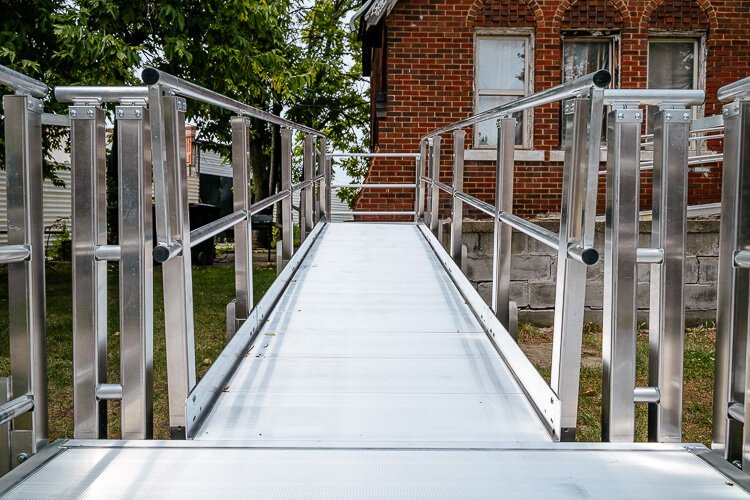
Fixing the gaps in home maintenance
The demand for grants like AMP can’t be understated, says Dan Commer, Bridging Communities Manager of Neighborhood Stabilization and Housing. His nonprofit is constantly getting calls from homeowners asking about these types of programs.
“This is probably the single greatest need we see on a daily basis,” Commer says. “It’s a real challenge to try to equitably get this assistance to folks. We really have to try and manage expectations and clearly state [potential obstacles to getting funding] when we’re talking to somebody.”
Erica Mixon, a community advocate with Central Detroit Christian, agrees with his assessment about the dire need for home repair assistance, remarking that her
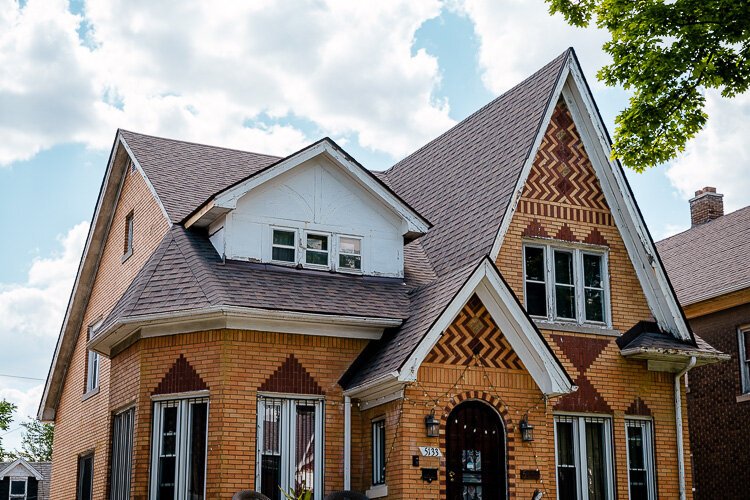
central Detroit-based nonprofit receives calls “all day, every day” looking for help on that front. As for the types of issues the residents she works with encounter, they come in all shapes and sizes.
“I went to a home recently where the homeowner had bought a home from the land bank,” says Mixon. “It needs exterior work. She has mold. She has flooding in the basement. She even has had to go into the home and do pest control, so it varies from the least to the greatest.”
In addition to the AMP grant, both Bridging Communities and Central Detroit Christian also connect homeowners with another FHLBank Indianapolis program called the Neighborhood Impact Program (NIP), which focuses on home repairs. Like the AMP, it is geared toward helping low-income residents in Michigan and Indianapolis who meet program criteria.
NIP is designed to help qualified homeowners pay for deferred maintenance repairs. One of the most common areas homeowners use the grant to pay for is roofs.
Fadiah Yahya is among Detroit’s NIP beneficiaries. A single mother, Yahya works as a community advisor for a digital inclusivity program and lives with her daughters on the border of the city’s Claytown and Chadsey Condon neighborhoods in Southwest Detroit. After purchasing her home in 2011, she immediately went to work attending to the different repair-related issues with the home, most prominently the roof. Unfortunately, due to budget constraints, she was only able to afford to fix half the roof at that time.
“Everything was fine until recently, maybe a year before COVID-19,” says Yahya. “It started leaking from the front, damaging the ceiling. I brought in contractors [but they just] ruined everything more.”
She had reached out to Bridging Communities for home repair assistance and was eventually given an opportunity to participate in the NIP program. The nonprofit helped her apply through Level One Bank, and she was awarded a $7,500 grant to help her address her roof problems. This time, she opted to repair the entire roof. Now when it rains, Yahya and her daughters can rest easy without having to worry about water leaking down from the ceiling.
“As a single mother, I need to save, and I need whatever help I can get,” she says. “I was lucky to have went through [the program] and got [the grant]. It’s a great investment for my daughters.”
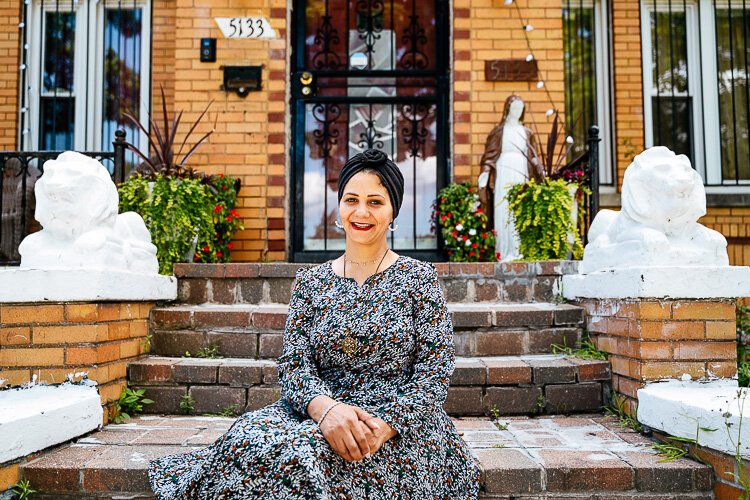
Connecting residents with resources
For residents looking for help with home repairs and modifications in Detroit, there are a variety of different resources available to qualified candidates. Some programs need to be applied for with the assistance of community-based nonprofits like Bridging Communities or Central Detroit Christian, while others may be accessed independently.
According to Mixon, homeowners who may not qualify for the AMP or NIP programs often apply for $7,500 grants from the Neighborhood Enhancement Program (NEP),
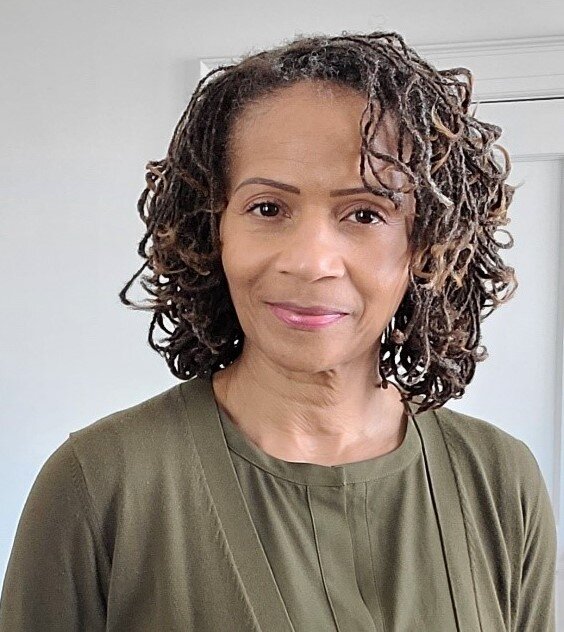
which is sponsored by the Michigan State Housing Development Authority (MSHDA). The program is designed to fund innovative activities to address a neighborhood’s specific needs, a portion of which is allocated to help qualified homeowners cover exterior home renovation costs.
Grant recipients use funds from the program to help cover costs for things like roof repairs, gutters and exterior painting.
Central Detroit Christian also collaborates with DTE Energy to help local homeowners take advantage of the utility company’s Energy Efficiency Assistance (EEA) program. That program helps qualified low-income applicants make their homes more energy efficient by covering the costs of products and services like heating system tune-ups and replacements, high efficiency water heaters, energy-efficient lighting and home weatherization.
Nonprofits involved with the EEA program got an additional boost this May, when the Gilbert Family Fund in partnership with DTE Energy and ProMedica announced the launch of a new $20 million grant program called the Detroit Home Repair Fund (DHRF). Aimed at homeowners whose income is at or below 200% of the federal poverty level, the DHRF program seeks to assist more than 1,000 Detroit homeowners over the next three years, starting with those already participating in DTE’s EAA initiative. There is no minimum or maximum grant amount designated for the program, which seeks to encourage Detroit housing stability by allowing homeowners to make use of multiple home repair resources at the same time.
While homeowners who contact Bridging Communities often believe the nonprofit runs its own home repair fund, that’s not the case. The nonprofit acts as a facilitator to connect homeowners with resources in Southwest Detroit.
“We actually receive grant dollars from different organizations that allow us to do the home repairs,” says Darchelle Strickland Love, Executive Director of Bridging Communities. “So we might grant funds from MSHDA, we might get block grant money. We might get private foundation money. And each of the entities have [their own] criteria of whom we can help.”
The Bridging Communities director ultimately sees home repair programs as an effort to preserve affordable housing, since they help prevent homes from reaching the stage where they are unsafe or unlivable for those who are unable to afford repairs on their own.
“People that live in the house that they’ve paid for, that’s affordable … and they want to stay where they are,” says Strickland Love. “So these funding opportunities help people to do that and reduce blight, because now you don’t have an empty home in the neighborhood.”
A city-wide approach
Home repair isn’t only a big priority for local nonprofits, it’s a need that is very much on the city’s radar. In fact, for Heather Zygmontowicz, the City of Detroit’s Chief of Special Housing Programs and Strategic Implementation, it’s at the top of the list when it comes to the concerns she’s hearing from residents.
“The city of Detroit has long been a single-family housing mecca,” she says. “So we have all this housing stock, but it’s really suffering because it’s very old. It’s older than many major urban cities’ housing stock and it requires repair.”
Working with partners and on its own, the city of Detroit offers several programs designed to help homeowners rehab and upgrade their houses. One of the most
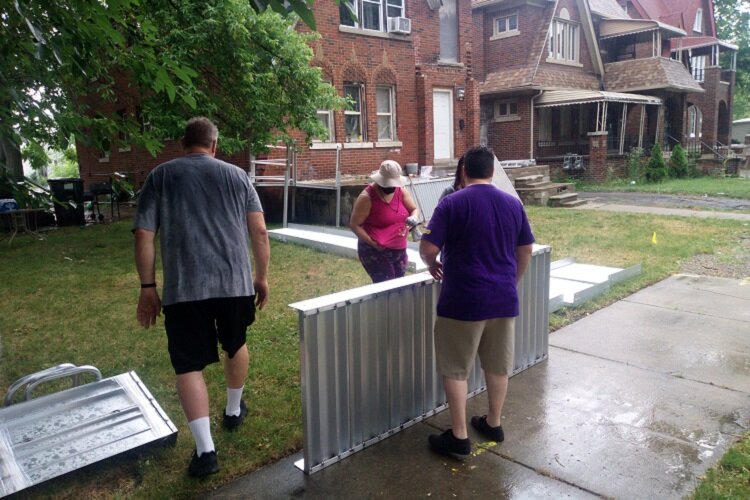
well-known is the Detroit 0% Interest Home Repair program. Through that initiative, qualified low-to-moderate income Detroit homeowners can access interest-free loans from $5,000 to $25,000 to invest in and repair their homes. The loans cover areas like lead removal, electrical repairs furnace and HVAC replacement; roof replacement, plumbing, door and window replacement, concrete repairs, and structural repairs. Repayment of the loans is paced out over 10 years.
The city also offers several lead removal initiatives under the banner of the Detroit LeadSafe Housing program that’s geared towards homes where pregnant women and young children live or spend considerable time. Qualified older homeowners may be able to take advantage of Detroit’s Senior Emergency Home Repair program, which can help those ages 62 and up (or disabled homeowners ages 55 and above) gain access to up to $15,000 to help with repairs related to windows, plumbing, roofing, electrical work, water heater, furnace, and ramps. That program is not currently adding names to it’s waiting list until more of the current repairs are addressed.
Using funds from the federal American Rescue Plan Act (ARPA), the city has also established a program called Renew Detroit. The $30 million program has allocated $20 million to repair 1,000 roofs across the city, and is now preparing to announce its second stage which will target the remaining $10 million for additional home repairs that have not yet been specified.
Looking ahead, city officials are also working out the details of a new HUD Healthy Homes grant that is expected to entail grants of up to $10,000 to qualified homeowners for repairs related to healthy quality of life conditions like removing mold, replacing roofs, and addressing major plumbing or electrical concerns. It is expected to support the work of existing programs, including the 0% Home Repair Loan and a weatherization program administered by Wayne Metropolitan Community Action Agency.
With these new programs, the city has begun to shift its perspective on home repairs toward a more wide-ranging vision that takes the whole housing ecosystem into consideration, an approach that’s being mirrored by the private DRHF program. Under this new holistic way of thinking, the Detroit Housing and Revitalization Department is trying to find ways to bring together private and public home repair funding so they can both have a greater impact for homeowners.
“We want to see how they fit together, so they can be manageable and navigable for residents,” says Heather Zygmontowicz. “We’re trying to put as many resources as possible behind it, because it’s that important to make sure our residents are housed safely and affordably.”
Update: The City of Detroit is not currently adding names to Senior Emergency Home Repair program until more of the repairs on its current waiting list are addressed. The article has been updated to reflect that.
Photos are by Nick Hagen, unless otherwise noted.
This is part of the Block by Block series, supported by FHLBank Indianapolis, that follows minority-driven development in Detroit.
